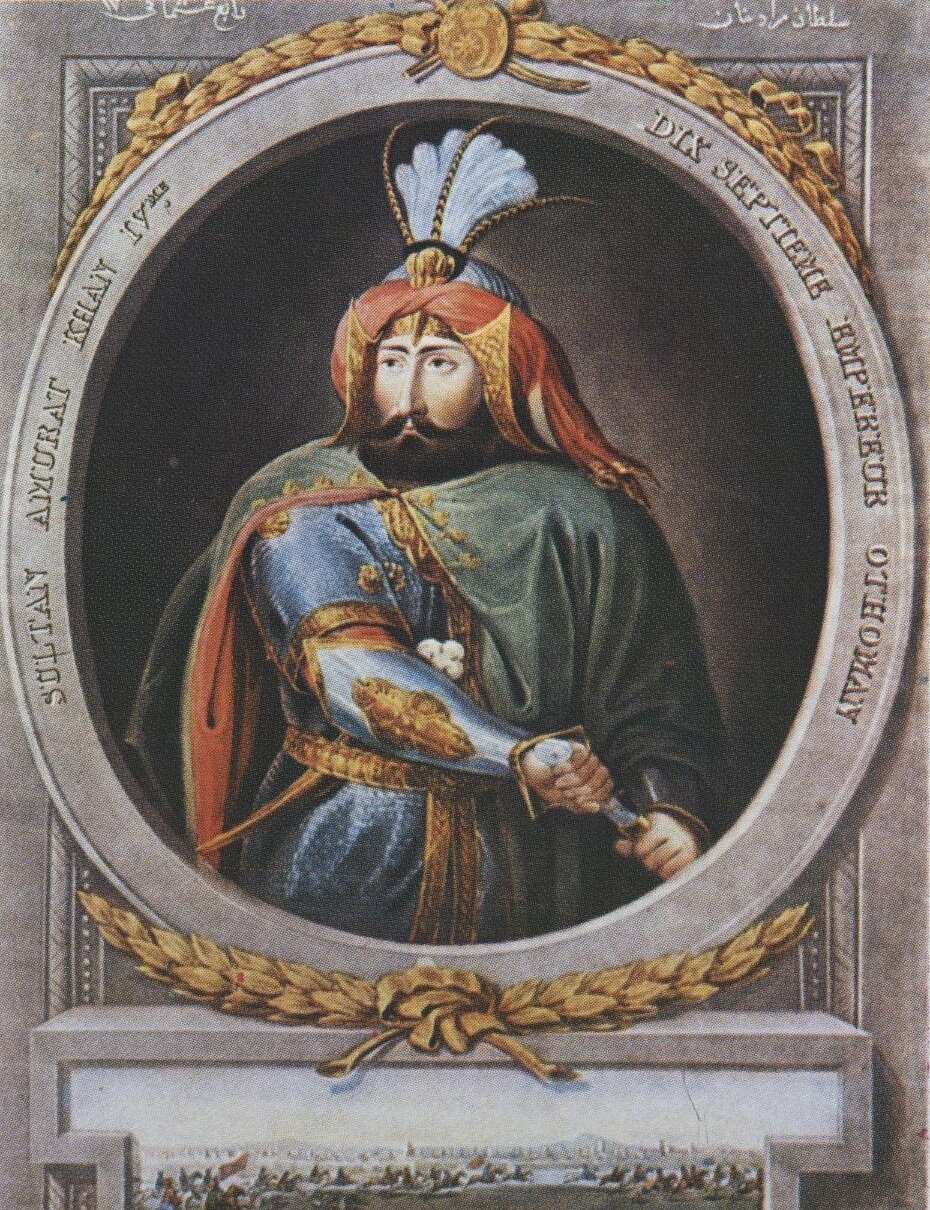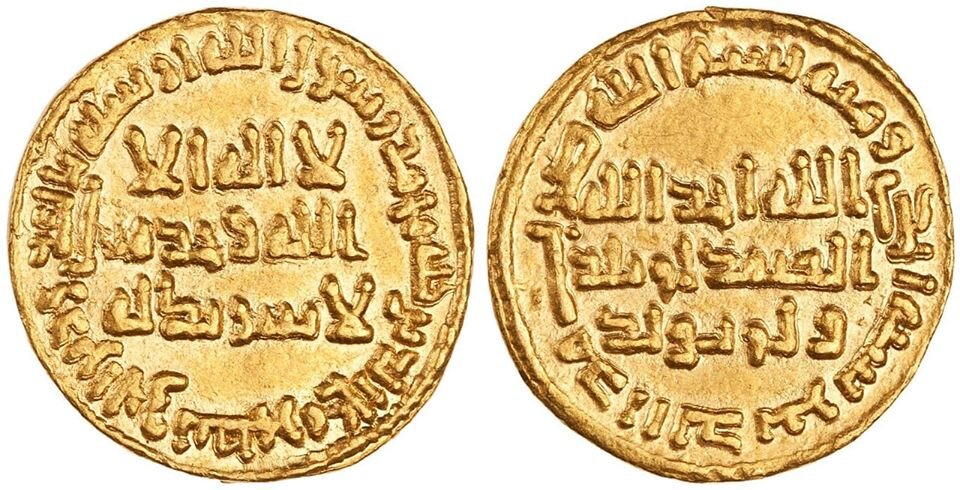On this day in Islamic history: February
List of events that took place throughout Islamic history in the month of February.
(This will be constantly updated when new information arises; your help in this regard would be most appreciated).
February 2:
On this day (2 February, 1449 CE {28/29 Dhul Qa'dah, 852 AH}), Ibn Hajar al-Asqalani, one of the greatest scholars of Shafi'i fiqh (Shafi'i jurisprudence) passed away in Egypt.
He wrote over 50 books on Hadith studies, Shafi'i law, Tafsir (commentary of the Quran), and history.
Credit: Lost Islamic History
February 3:
On this day (3 February, 1348 CE {22/23 Shawwal, 748 AH}), Imam al-Dhahabi (Allah have mercy on him) - also known as Shams ad-Din al-Dhahabi - passed away in Damascus, then part of the Mamluk Sultanate of Egypt & Syria.
He was said to be of Turkmen ancestry and sometime later his family were said to have moved to Damascus.
Moreover, Imam al-Dhahabi was said to have been a expert in the study/science of Hadith and started his study of Hadith at the young age of 18.
He was also an accomplished Islamic historian and authored one such work titled "Siyar A'lam al-Nubala"; a biographical dictionary of Muslim history that is still extensively used in research on early Muslims.
One of his sons (Abu Hurayra) even taught the science of Hadith to the likes of the famous Ibn Hajar al-Asqalani (Allah have mercy on them both).
—————
On this day (3 February, 1451 CE {20/21 Dhul Hijjah, 854 AH}), marked the death & end of the second reign of Sultan Murad II, and by extension, the beginning of the second reign of Sultan Mehmed II at the age of 19.
Sultan Mehmed II had previously become Ottoman Sultan in August 1444 CE at just 12 years old after his father Murad II abdicated the throne, but he himself then abdicated the throne two years later in 1446 CE back to his father Murad II.
Murad II though in November 1444 CE/Sha’ban 848 AH (3 months after stepping down) led the Ottomans in the famous Battle of Varna, upon the request of both Mehmed II and Grand Vizier Candarli Halil Pasha.
Thereafter, Murad II reigned again two years later from 1446 CE until his death in 1451 CE, hence meaning both father and son reigned twice as Ottoman Sultan.
Two years later in 1453 CE, the Ottoman State under his son Mehmed II - who was just 21 years of age - would conquer Byzantine Constantinople, marking the end of the Byzantine Empire and propelling the Ottoman State onto the world stage.
February 6:
On this day, (6 February, 743 CE {1/2 Rabi al-Thani, 125 AH}), the Umayyad Caliph Hisham ibn Abdul-Malik ibn Marwan passed away in the Syrian city of Resafa/Rusafa at the age of 52.
Hisham ibn Abdul-Malik was the 10th Umayyad Caliph who ruled from 724 CE/105 AH) until his death in 743 CE/125 AH.
February 8:
On this day, (8 February, 1640 CE {14/15 Shawwal, 1049 AH}), Ottoman Sultan-Caliph Murad IV passed away at the young age of 27 in Ottoman Istanbul from gout.
Sultan Murad IV was the 17th Ottoman Sultan and the 9th Ottoman Caliph. He was the son of Sultan-Caliph Ahmed I (whom the Blue Mosque/Sultan Ahmet Mosque is named after).
He ascended to the rule of the Ottomans in the time of great corruption and internal strife but managed to reform the State in a manner similar to his ancestor, Sultan-Caliph Suleiman Kanuni (Suleiman the Lawgiver).
Arguably his greatest achievement was his reconquering of Baghdad from the Safavids on the 25th of December, 1638 CE (Sha'ban 1048 AH).
His military expeditions into Persia would have most likely continued after the conquest of Baghdad, but his health has started to deteriorate significantly and hence he returned to Istanbul.
His death following Esha salaah on the night of Jumu'ah (Thursday night) was said to have to led to bursts of joy and happiness from various European monarchs.
Murad IV never launched a single campaign into Europe yet it was said his sheer presence caused fear amongst the Europeans.
Al Fatiha!
February 9:
On this day (9 February, 720 CE {20/21 Rajab, 101 AH}**) Umar bin Abdul Aziz, considered the fifth rightly guided Caliph***, died in Damascus.
Commonly known as Umar II, he was the eighth Umayyad Caliph, ruling from 22nd of September, 717 until his death in February of 720.
Pictured is the gold dinar of Umar Bin Abdul Aziz, minted in Damascus (719/20).
**There is a difference of opinion on dates including 5 or 6 Rajab, 101 AH (25 or 26 January 720 CE) as well as 20 or 21 Rajab, 101 AH (9 or 10 February, 720 CE); I will research this further Insha’Allah.
* * *There is difference of opinion on Hazrat Hasan ibn Ali (Allah be pleased with him), the grandson of Prophet Muhammad ﷺ being the “fifth rightly guided caliph” or if that title is that of Umar bin Abdul Aziz/Umar II (Allah have mercy on him).
February 10:
On this day (10 February, 1918 CE {27/28 Rabi al-Thani, 1336 AH}), Ottoman Sultan-Caliph Abdülhamid II passed away at the age of 75, in the Beylerbeyi Palace in Ottoman Istanbul.
Abdülhamid II was the 34th Ottoman Sultan; the 26th Ottoman Caliph and effectively the last Ottoman & Caliph to hold any real power over the Ottoman State.
After he was deposed in April 1909 CE (Rabi al-Thani, 1327 AH), he was exiled to Salonica (modern-day Greece), making him the first Ottoman Sultan to be exiled outside of Istanbul.
After the outbreak of the Balkan Wars, he returned to Istanbul in November 1912 CE (Dhul Qa'dah, 1330 AH), and resided in the aforementioned Beylerbeyi Palace, where he spent the last years of his life.
The literal mess that the Ottoman State found themselves in post-Abdülhamid II, led many who had opposed him to regret their decisions.
It is said that he opposed Ottoman involvement into World War 1 and would pass away before witnessing many of the consequences of said World War 1.
Sultan-Caliph Abdülhamid's burial place can be found in the the Tomb of his grandfather Sultan-Caliph Mahmud II, in Istanbul.
Al Fatiha!
February 14:
On this day (14 February, 1483 CE {25/26 Dhul Hijjah, 887 AH}), the founder of the (Timurid) Mughal Dynasty, Zahir-ud-Din Muhammad Babur or usually known as just Babur, was born in Central Asia in the city of Andijan in modern-day Uzbekistan.
Babur was the founder and first ruler of the Mughal Empire in the Indian subcontinent and was a direct descendant of Amir Timur (Tamerlane) of the Timurid dynasty.
February 17:
On this day, (February 17, 923 CE {21/22 Shawwal, 310 AH}), Abu Ja'far Muhammad ibn Jarir al-Tabari (Allah have mercy on him), the influential Persian Islamic scholar, historian and exegete/commentator of the Qu’ran passed away at the age of 86 in the city of Baghdad (Abbasid Caliphate).
More commonly known as just Al-Tabari, he is best known for his expertise in Qu’ranic exegesis/commentary (Tafsir), Islamic jurisprudence (Fiqh) and world history (tarikh).
See link here for more information
February 21:
On this day (February 21, 1965 CE {18/19 Shawwal, 1384 AH}), the American Muslim activist El-Hajj Malik el-Shabbaz, better known as Malcolm X (May Allah have mercy on him), was assassinated in New York City at just 39 years old (after prior attempts on his life).
Who exactly was responsible is still clouded in mystery but 3 members of the heretical NOI (Nation of Islam), of which Malcolm was previously a part of, were said to have been arrested.
A series of events led Malcolm to leave the NOI including hearing reports of immorality about Elijah Muhammad, the leader of the NOI.
Malcolm X thereafter officially adopted orthodox Islam after he completed the Hajj pilgrimage in Arabia in April 1964 CE (Dhul Hijjah 1383 AH).
Pictured is Malcolm X (centre) in traditional African clothing from one of his travels to the African continent (after his conversion to Islam).
Al Fatiha!
February 28:
On this day (28 February, 1246 CE {2/3 Shawwal, 643 AH}), the Andalusian city of Jaén (خيّان in Arabic) in modern-day south-central Spain, fell to the Christian kingdom of Castile.
After Jaén fell to the Castilians in 1246, a local sheikh concluded his final Friday sermon in the city's mosque by lamenting, "This is the last [Muslim] sermon which will ever be preached in Jaén."
It has been well over 700 years since his sermon.
Credit: Lost Islamic History
Help me bring you more articles like this by becoming a Patron.
















